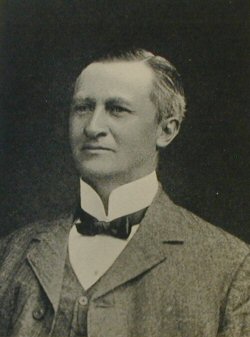 PETER FYFE
PETER FYFE PETER FYFE
PETER FYFE THE Chief Inspector of the City's Sanitary Department was
born in Glasgow on the 24th of April, 1854. His father (also Peter Fyfe) was a
lithographer in the city. He died early, and the family thereafter resided
successively at Ashton, Gourock, and at Pollokshields. Mr. Fyfe received his
education at Gourock Parish School and Glasgow Academy, then situated in Elmbank
Street. In 1868 he was offered the choice of a practical training in his uncle's
iron foundry, or the usual course at Glasgow University, in order to study for
one of the professions. He accepted the former, and spent two years in learning
foundry moulding and pattern-making, at the same time taking evening classes at
the Andersonian College in geometry and mathematics under Professor Thorpe, and
attending the drawing classes at the School of art in Sauchiehall Street. Having
a strong bent for engineering, he, in 1870, became an apprentice in the firm of
Messrs. Duncan Stewart & Co., London Road Iron Works, where, during the
following six years, he passed through all the shops, including the drawing
office. At the end of this time, viz., in 1876, he went for a short tour in the
United States. On his return he became chief draughtsman to the well-known firm
of crane-makers, Messrs. Alexander Chaplin & Co., in Cranstonhill; and three
years thereafter, at the end of 1879, entered the service of the Corporation as
engineer to the Cleansing Department, then under the supervision of Mr. John
Young. It was in that year that this department, having just completed the
purchase of the site of the old Glasgow Iron Co.'s works at Charles Street, St.
Rollox, took its first great step forward - treatment of the city refuse by
machinery.
This was the turning point in Mr. Fyfe's career. The firm of
Alexander Chaplin & Co. shortly after this was practically dissolved, both the
partners having died; and the manager proposed to Mr. Fyfe that he should join
him in taking over the assets of that firm, with a view to begin as engineers on
their own account under the old name. But as he had started with his designs for
the buildings and necessary furnaces and machinery for the St. Rollox Refuse
Despatch Works, Mr. Fyfe felt loath to relinquish the undertaking; and,
notwithstanding the tempting offer of a partnership in a going engineering
concern, decided to abide in the Corporation service. Towards the end of 1885
Chief Sanitary Inspector Kenneth Macleod died, and Mr. Fyfe was selected out of
69 applicants to fill the vacant office. Since then he has laboured in his
native city as the Sanitary Chief, and under him the department has grown
steadily. In 1885 the total number of the staff and assistants was 84; now they
number 244.
He has written a large number of pamphlets on sanitary and
public health subjects; was President of the Sanitary Association of Scotland in
1890, and shortly thereafter was ordained a Fellow of the Royal Society of
Edinburgh and a Member Associate of the Société Française d'Hygiène. He has some
repute as a chess player and composer of chess problems, and in 1883 discovered
a new method of opening this intricate game which has been named "the Fyfe
gambit." He is a reader of classic poetry, and has on some occasions courted the
muse, although anything in this line which has been published always appeared
over a nom-de-plume until his drama "Kedar" saw the light in 1906. He has
figured on many platforms throughout the country as a lecturer, and is
identified with the problems of the housing of the poor and the abolition of the
smoke nuisance. Among the many subjects with which he has dealt in the press and
on the platform have been "Sewage of the Air," "A City's Health and how it is
Preserved," "Building Construction in relation to Public Health," "Back Lands
and their Inhabitants," and "Farmed-out Houses."
A large part of the wonderful health which Glasgow now enjoys
is to be attributed to the ingenuity, painstaking skill, and organising powers
of Mr. Fyfe.
Back to
Index of Glasgow Men (1909)